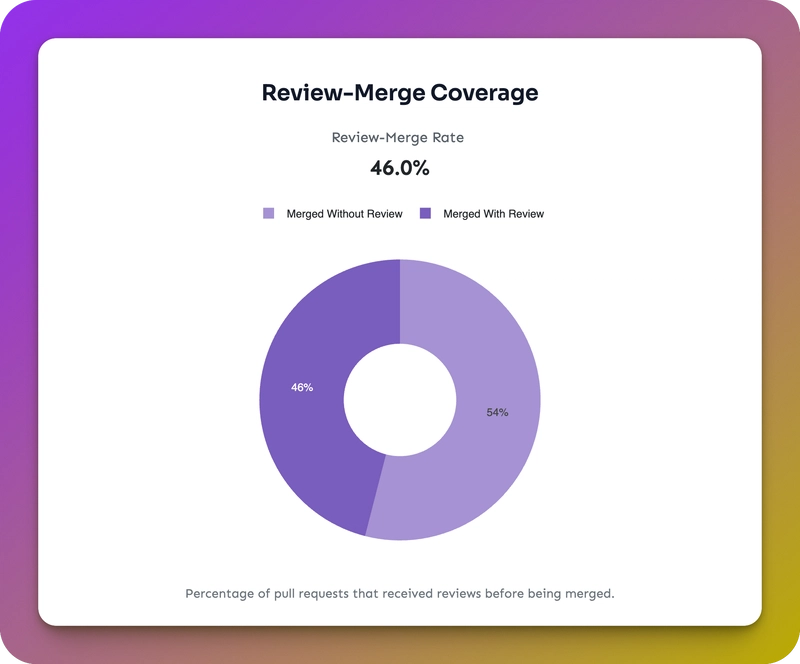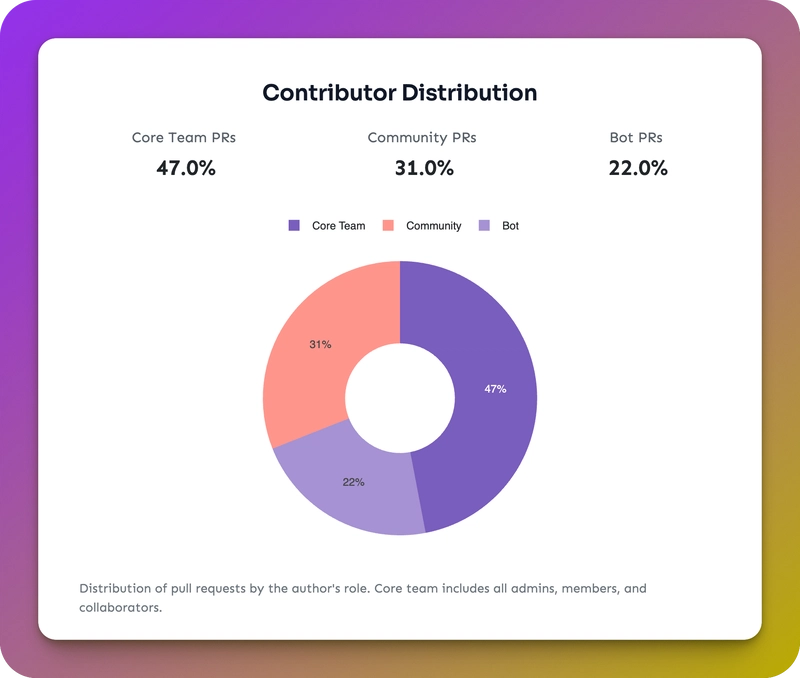Strong contributor guidelines and balanced team contributions power this modern open-source publishing platform
Introduction
Ghost is a leading open-source publishing platform designed for modern creators, journalists, and businesses. Founded in 2013 as a non-profit organization, Ghost has grown to become a powerful alternative to traditional blogging platforms, with over 49,000 GitHub stars and a thriving ecosystem of themes and integrations. The platform focuses on providing beautiful, fast, and professional publishing tools, enabling users to create websites, send newsletters, and build subscription businesses.
We researched Ghost on collab.dev and uncovered some fascinating collaboration patterns that highlight the project's streamlined development approach and strong dedication to the contributor experience.
Key Highlights
- Rapid Review Turnaround: With a median review time of just 3 minutes and 22 seconds, Ghost demonstrates exceptional responsiveness in code review processes due to prioritizing updates and features for longer.
- Lightning-Fast Merge Times: PRs are merged with a median time of 15 minutes and 8 seconds, showcasing an incredibly efficient development workflow, perhaps due to strong contributor regulations.
- Moderate Review Coverage: 46% of PRs receive reviews before merging, indicating a balanced approach between speed and quality assurance.
- Strong Core Team Presence: 47% of PRs come from core team members, showing active maintainer involvement while still welcoming community contributions.








Top comments (7)
Those review and merge speeds are honestly next level. Any secrets you picked up on how they keep turnaround so fast without burning out the team?
I strongly believe that the core maintainers put a lot of effort into making the contributor experience seamless. Their strong guidelines help a lot. Also, a lot of simple fixes (bug fixes, upgrades, etc) go directly to merge given that they pass a few tests. Because of this, their merge speeds are faster. The core team gets involved when it comes to new features or changes to the core product, I'm assuming, which is what takes longer. Additionally bot activity beyond just commenting shows that automation is helping with that speed.
Ghost has a strong commercial model and a full-time team. I'm sure that's going to be a significant factor.
Yes! I also especially love their dedication to their community; beyond their core team, they've allowed contributors who have been part of the project for a long time to become maintainers for the repo. It's a great way to continue to engage the community and provide opportunities and different perspectives.
nice
damn, numbers like that tell me someone really cares about keeping the ball rolling - you think it’s mostly process or some mix of team passion and structure over years?
I believe it's a bit of both. Ghost is a huge project with a ton of dedication to ensuring its success and efficiency. The team has to put forth a ton of work and effort to make sure the project is continuously authentic and active, but the more contributors and users grow, so does the need for a proper structure. It helps keep the contribution process smooth.